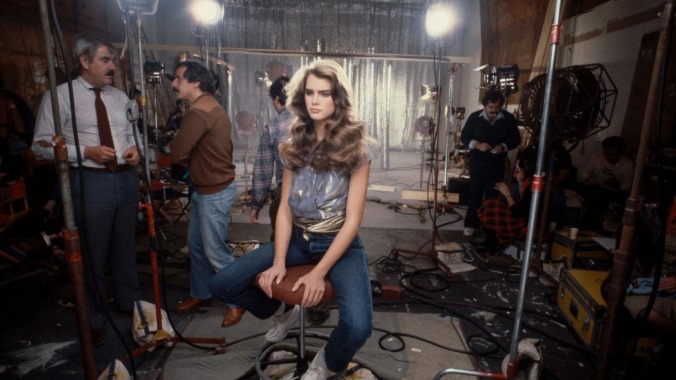Pretty Baby: Brooke Shields review: unflinching doc charts a journey from victim to survivor
Director Lana Wilson's comprehensive look at Shields' life and career delivers a powerful condemnation of our voyeuristic celebrity culture

Actress, model, icon, sex symbol, dream girl, the face of an era—all of these titles perfectly suit Brooke Shields. However, she was saddled with these monikers as an adolescent girl, her outward attributes scrutinized by an exploitative media and many a leering male gaze. Her all-American good looks and natural charisma rocketed her into the stratosphere, but the unwanted by-product of that fame was her pre-pubescent image being objectified by men and abused for the sake of art and commerce.
In Hulu’s two-part documentary Pretty Baby: Brooke Shields, director Lana Wilson (Miss Americana, After Tiller) captures Shields’ compelling reality with an assured voice while also holding up a mirror to society and examining how it allowed this type of lurid sexualization of young girls to flourish. As revealing as it is revolting to hear what she experienced, it inspires plenty of thought-provoking conversations. Her testimonials, as well as those from scholars, authors, friends, and family provide a comprehensive portrait of a personal life and career filled with highs (from educational achievement to motherhood) and lows (from her mother Teri’s alcoholism to her own post-partum depression).
By co-opting the title of Louis Malle’s controversial 1978 drama Pretty Baby—in which Shields stars as a pre-teen sex worker—Wilson suggests a narrative finally controlled by a woman who has developed a powerful voice. Though the documentary doesn’t reinvent the genre—it stitches together talking head interviews, home videos, film footage, and photographs—its straightforward nature makes the facts and emotional urgency all the more stark. They don’t need to over-stylize the aesthetics; Shields’ drama is eye-popping enough as it is.
Wilson and editors Sara Newens and Anne Yao supply the crackling energy, showcased in sequences that combine an interviewee’s salient points about the seediness of the times with damning visual evidence of journalists objectifying the then 9-year-old (one labeled her “The Child That Drives Men Wild”). In its lighter moments, it finds strength in scenes showing Shields at home, spotlighting the mundanity of her domesticity, and in chats with her friend—and the documentary’s executive producer—Alexandra Wentworth.
After many books and talk show appearances over the decades, Shields still has more illuminating things to say about what made her who she was then and who she is now. Beyond her filmography, other topics range from her professional split with her controlling “momager” (a portmanteau that didn’t exist at the time but definitely applies) to her public feud with Tom Cruise over her use of medication for post-partum depression. Wilson walks us through these tonal shifts with skill and craft. Shields’ biggest reveal (one best told in her words) is handled with grace. The way it unfolds, sharing intimate details of an unimaginable betrayal, speaks to her enduring efforts towards healing—both for herself and others who might be struggling with similar soul-baring.
Interviewees make valid indictments of our male-dominated culture, but some of their assertions feel like wild overreaches. It seems dangerous to posit that the hyper-sexualization of young girls was a knee-jerk response to second-wave feminism and the women’s liberation movement, and the evidence presented (ad campaigns from the time), though jarring, comes across as dubious.
Later, it’s floated that because of our culture’s rampant misogyny, it’s Shields’ mother who bore the brunt of America’s scorn about her young daughter’s risqué roles and not the male directors themselves. This too sounds like a leap, since the clips that Wilson uses are not equivalent in their setting: Teri and Brooke face an enraged audience on the sensationalist Donahue show, while Malle is interviewed by genial Today Show film critic, Gene Shalit. Had they swapped places, Malle would have been blasted by Donahue’s firing squad and mom and daughter would have been spared by Shalit’s softballs.
Wilson doesn’t make this easy viewing for voyeuristic audiences. Decades’ worth of Shields’ difficult situations are concentrated into an intense couple of hours—so sensitive viewers may need to take breathers. Still, while we’re able to look away from her childhood trauma, she’s never been able to—at least not if she wants to heal. Shields notes it’s astounding she survived it all. It’s a blessing she did, because of her uncanny ability to turn personal anguish into an altruistic weapon of truth for the benefit of others. This documentary is a testament to her fortitude and spirit, and adds one more title to her ever-evolving list of attributes: warrior.
(Pretty Baby: Brooke Shields streams on Hulu beginning April 3)